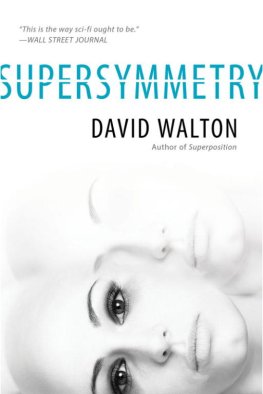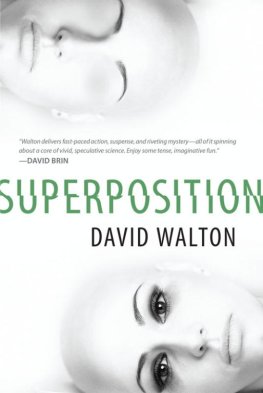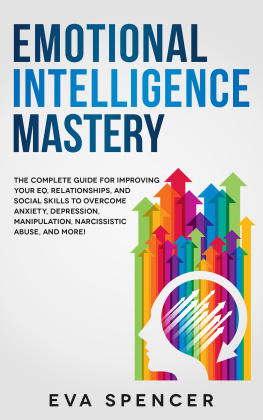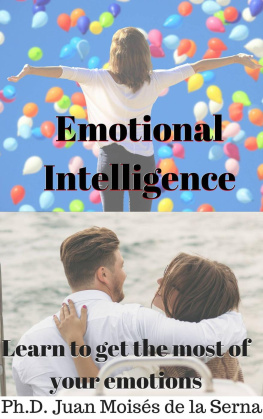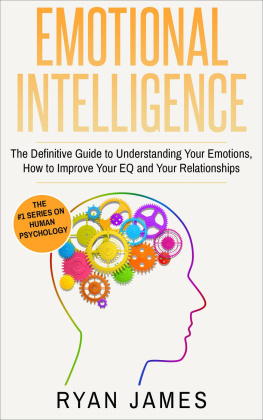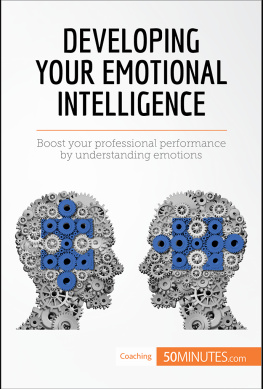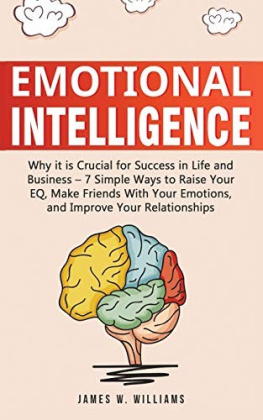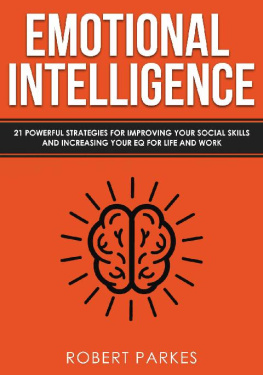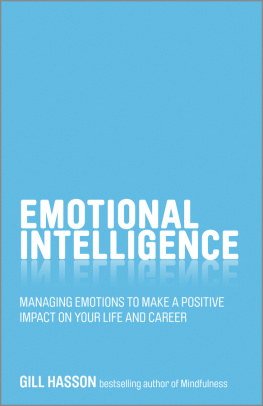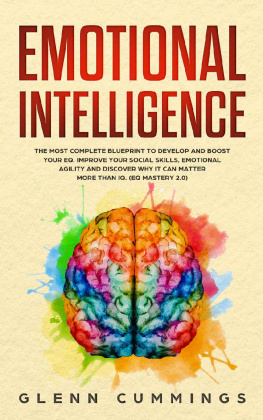David Walton - Introducing Emotional Intelligence: A Practical Guide
Here you can read online David Walton - Introducing Emotional Intelligence: A Practical Guide full text of the book (entire story) in english for free. Download pdf and epub, get meaning, cover and reviews about this ebook. year: 2013, publisher: Icon Books, genre: Religion. Description of the work, (preface) as well as reviews are available. Best literature library LitArk.com created for fans of good reading and offers a wide selection of genres:
Romance novel
Science fiction
Adventure
Detective
Science
History
Home and family
Prose
Art
Politics
Computer
Non-fiction
Religion
Business
Children
Humor
Choose a favorite category and find really read worthwhile books. Enjoy immersion in the world of imagination, feel the emotions of the characters or learn something new for yourself, make an fascinating discovery.

- Book:Introducing Emotional Intelligence: A Practical Guide
- Author:
- Publisher:Icon Books
- Genre:
- Year:2013
- Rating:4 / 5
- Favourites:Add to favourites
- Your mark:
- 80
- 1
- 2
- 3
- 4
- 5
Introducing Emotional Intelligence: A Practical Guide: summary, description and annotation
We offer to read an annotation, description, summary or preface (depends on what the author of the book "Introducing Emotional Intelligence: A Practical Guide" wrote himself). If you haven't found the necessary information about the book — write in the comments, we will try to find it.
Emotional intelligence is the innate potential to feel, use, communicate, recognize, remember, describe, learn from, manage, understand, and explain emotions.
Introducing Emotional Intelligence teaches the reader how to become more aware of his or her own emotions, and shows how being more aware of others emotions can improve personal and professional relationships.
Introducing Emotional Intelligence: A Practical Guide — read online for free the complete book (whole text) full work
Below is the text of the book, divided by pages. System saving the place of the last page read, allows you to conveniently read the book "Introducing Emotional Intelligence: A Practical Guide" online for free, without having to search again every time where you left off. Put a bookmark, and you can go to the page where you finished reading at any time.
Font size:
Interval:
Bookmark:
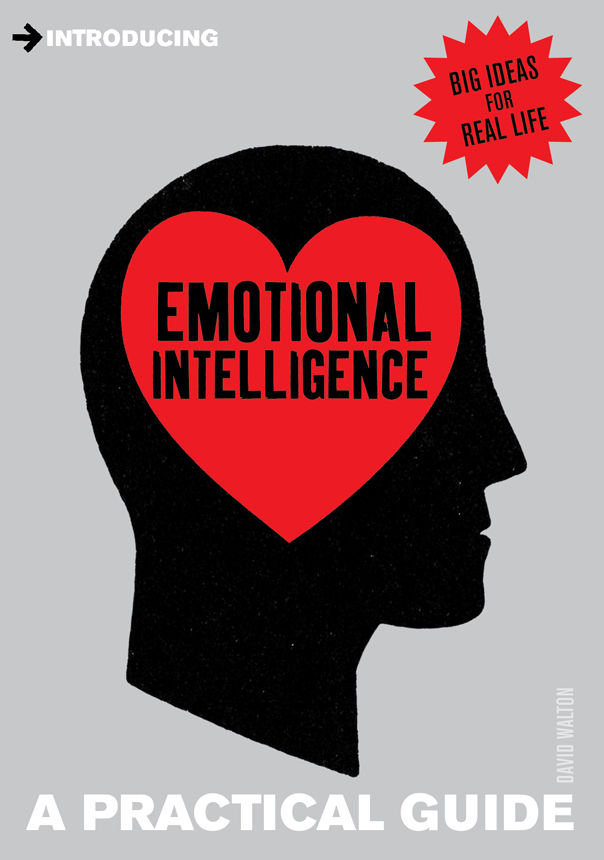
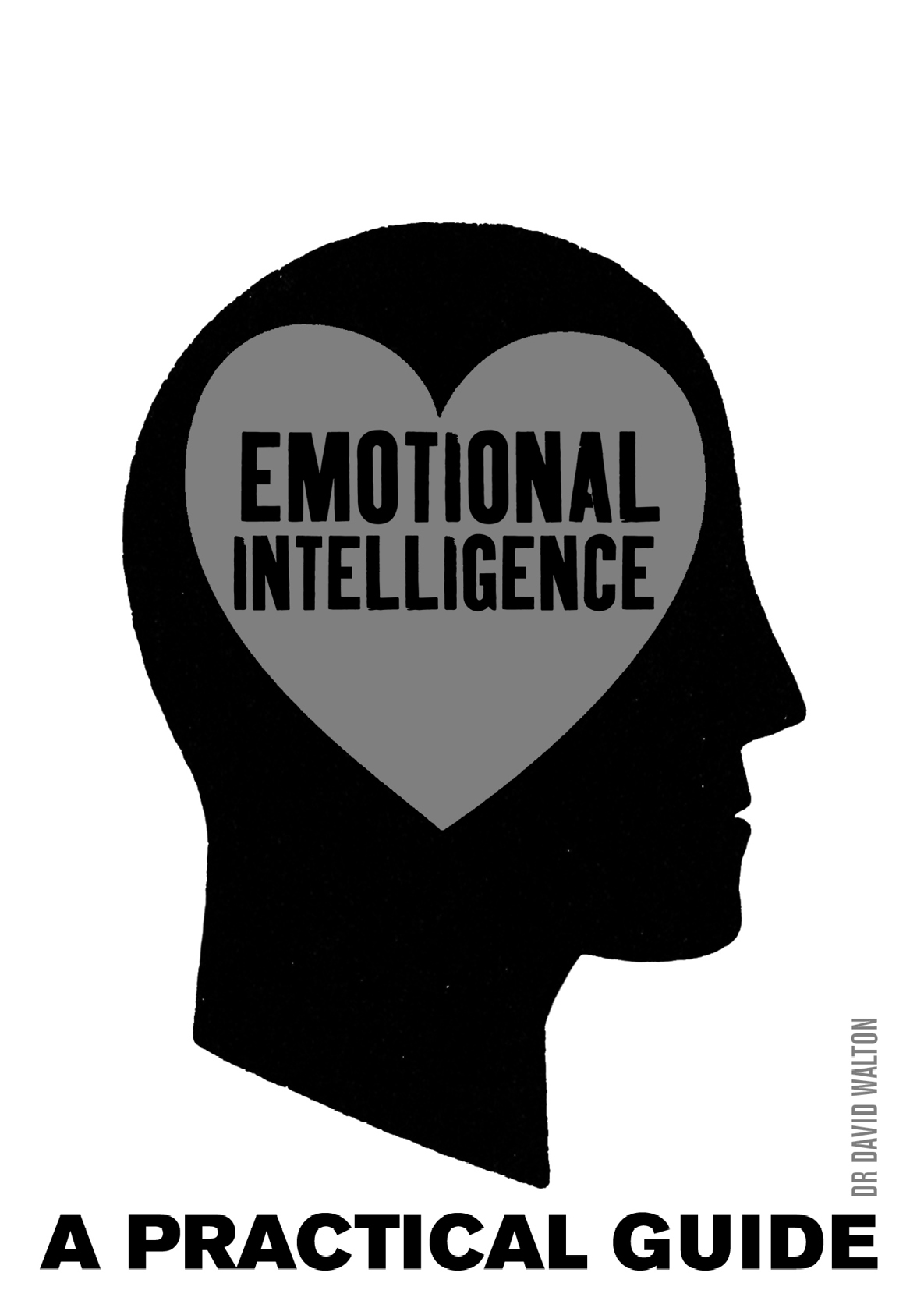
First published in the UK in 2012
by Icon Books Ltd,
Omnibus Business Centre, 3941 North Road, London N7 9DP
email:
www.iconbooks.net
This electronic edition published in the UK in 2012 by Icon Books Ltd
ISBN: 978-184831-422-1 (ePub format)
ISBN: 978-184831-438-2 (Adobe eBook format)
Text copyright 2012 David Walton
The author has asserted his moral rights.
No part of this book may be reproduced in any form, or by any means, without prior permission in writing from the publisher.
Typeset in Avenir by Marie Doherty
David Walton trained initially as a clinical psychologist in the UKs National Health Service, then as an occupational psychologist in government and public service. He worked in the UK and North America for a leading behavioural science consultancy and was subsequently principal psychologist with the United Nations Research Institute for Social Development.
In a varied career, David has advised the European Commission on people and organizational development projects and individuals and organizations in the private and public sectors on management and staff development. He holds visiting fellowships at two UK universities and is a national mentor for two very large social care charities. David also devises community education programmes helping people to understand more about mental health, depression, cognitive therapy and child and adolescent development.
It is important to note that there are many ideas and research findings that are frequently cited in relation to emotional intelligence. Where we know the origin we have been sure to reference it. Our apologies to the originators of any material who have been inadvertently overlooked.
Take a look at the following people. Do they remind you of anyone you know?
Anthony is trying to decide whether to cash in a savings bond to buy a classic car he wants. The trouble is, if he keeps the bond for another six months, it will mature and he will get an extra 5,000. But the car will have gone and its special. He wants it badly. Hes already got three other cars but hes not good on delayed gratification. Things would be easier if he had regular work.
Sue doesnt get on with her chief executive despite doing a really good job. Hes incredibly dismissive, doesnt respond to her reports on things which need looking at or approaching differently and he never looks her in the eye. Her colleagues see her as a role model for good practice. She wants a good career but isnt sure about the next step.
Peta hasnt met her sales targets again. Her customers just like to talk about their problems. She doesnt have anything in common with those sorts of people and would rather just get on with the job.
Peter gets very frustrated at home. His wife has changed. Nothing seems to satisfy her anymore and he has only the vaguest notion why. She seems frustrated or depressed all the time, in equal measure. She thinks hes always at fault so he gets angry, slamming doors and walking away.
Like many people, these individuals are all struggling with situations and difficulties which are troubling to different degrees. At first sight, it seems as though logic, rational decision-making and perhaps good common sense are the answer in theory, that is. But these examples come from the real world. Anthony, Sue and the others are real people. And that means they arent always logical. They dont always use rational decision-making, or common sense, for that matter.
Instincts, feelings and personal values take over and become a major part of the dilemmas facing our four people. Conflict between our thinking and our feelings makes things complicated. Gut instincts or intuition rely a great deal on emotion and feelings. The real world is a place where both feelings and instincts are major influences on our behaviour.
Anthony for example is having difficulty resisting temptation. He could wait for a lot more money his logic might tell him but the demands made by his emotions are in conflict with this. What actually happened was that, as usual, he gave way to his emotions and cashed in his savings bond. A year later he was in dire financial circumstances not just because of the car, but because the struggle between logic and emotion was always won in the same way. His feelings seem to take over his thinking: he makes a great case to himself for anything he wants.
Sue is trying to balance her own anxieties with the way her organization is changing and the effect of this change on the views and approaches of her colleagues. Her need for recognition is very high. She works with people who dont express themselves emotionally nor understand the importance of this for motivating staff. A year on, she has left her job. The organization has lost a real asset.
Peta hoped that her sales performance could be good enough without engaging too closely with her customers. She is uncomfortable getting too close to people. She finds small talk difficult and has always coped by concentrating on things she is interested in. Her product knowledge is good but it doesnt seem to affect her performance. She is now working in a back-office role, at a lower salary.
Peter is struggling to find ways of bringing his relationship under control. He and his wife are strong characters but he has never felt able to confront problems between them. He thinks it is better to walk away when he is angry because he has difficulty controlling strong emotions. His wife thinks he has become cold and is now wondering whether her life could be more fulfilling.
In each of the situations described above, the people involved will benefit from improving their emotional intelligence (EI). Their doing so will also make life easier for those who have to interact with them. EI is a valuable set of ideas you can use in the workplace and in the home; as a parent, teacher or manager.
Its about being aware of feelings in yourself and in others, understanding them and managing their impact. Its about being in control, interpreting body language, coping with negativity, working with others and building psychological well-being.
 Emotional intelligence is an assortment of mental abilities and skills that can help you to successfully manage both yourself and the demands of working with others.
Emotional intelligence is an assortment of mental abilities and skills that can help you to successfully manage both yourself and the demands of working with others.
Developing your own EI enables you to:
- Know yourself reasonably well
- Control your own emotions
- Show empathy with the feelings of others
- Use social skills in an effective as well as simply pleasant way.
This involves:
- Mindfulness: being aware understanding yourself and others
- Being in control of your own thoughts, emotions and needs
- Being positive and self-motivated particularly in the face of setbacks
- Using empathy: being able to put yourself in others shoes
Font size:
Interval:
Bookmark:
Similar books «Introducing Emotional Intelligence: A Practical Guide»
Look at similar books to Introducing Emotional Intelligence: A Practical Guide. We have selected literature similar in name and meaning in the hope of providing readers with more options to find new, interesting, not yet read works.
Discussion, reviews of the book Introducing Emotional Intelligence: A Practical Guide and just readers' own opinions. Leave your comments, write what you think about the work, its meaning or the main characters. Specify what exactly you liked and what you didn't like, and why you think so.

